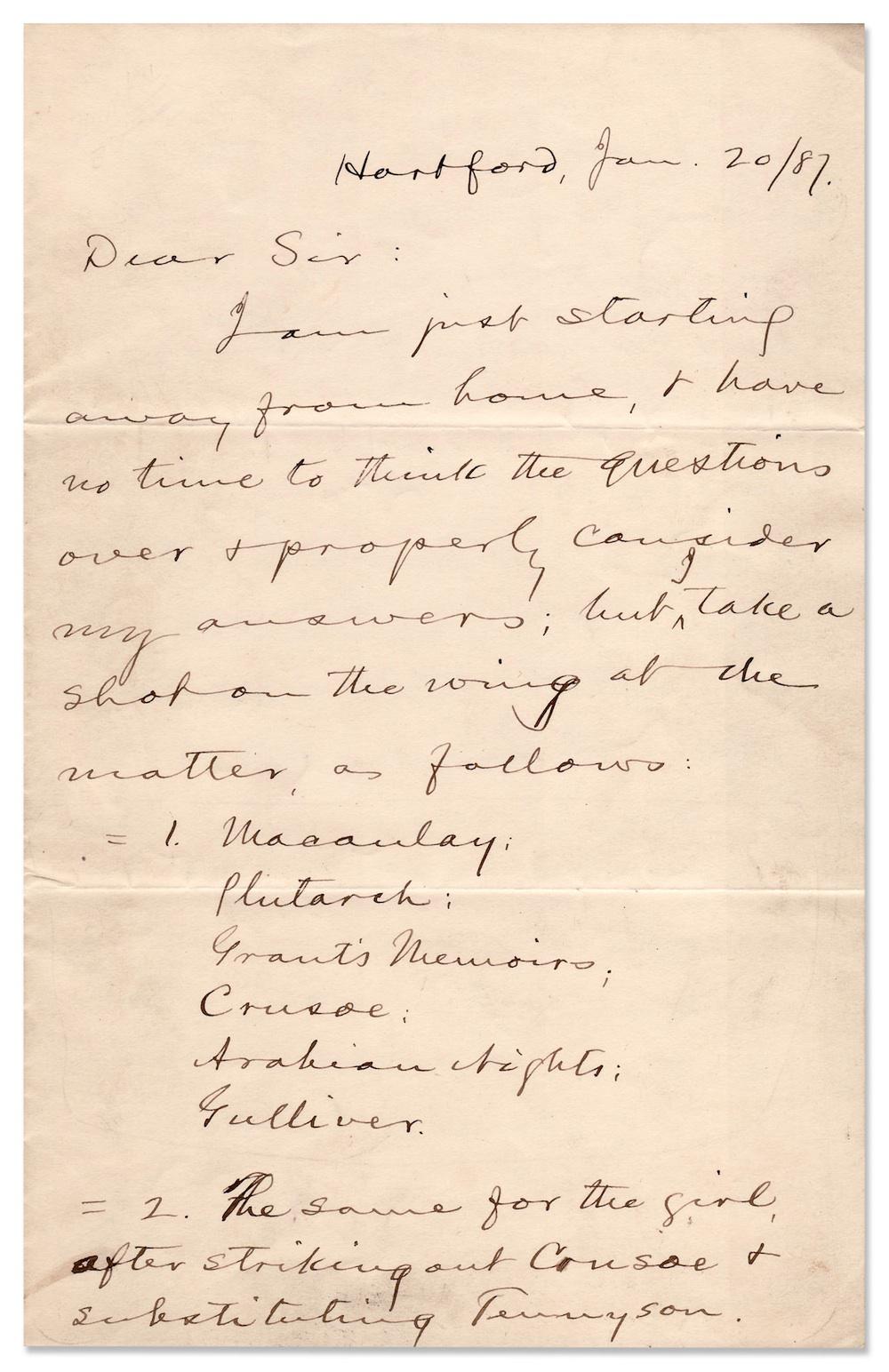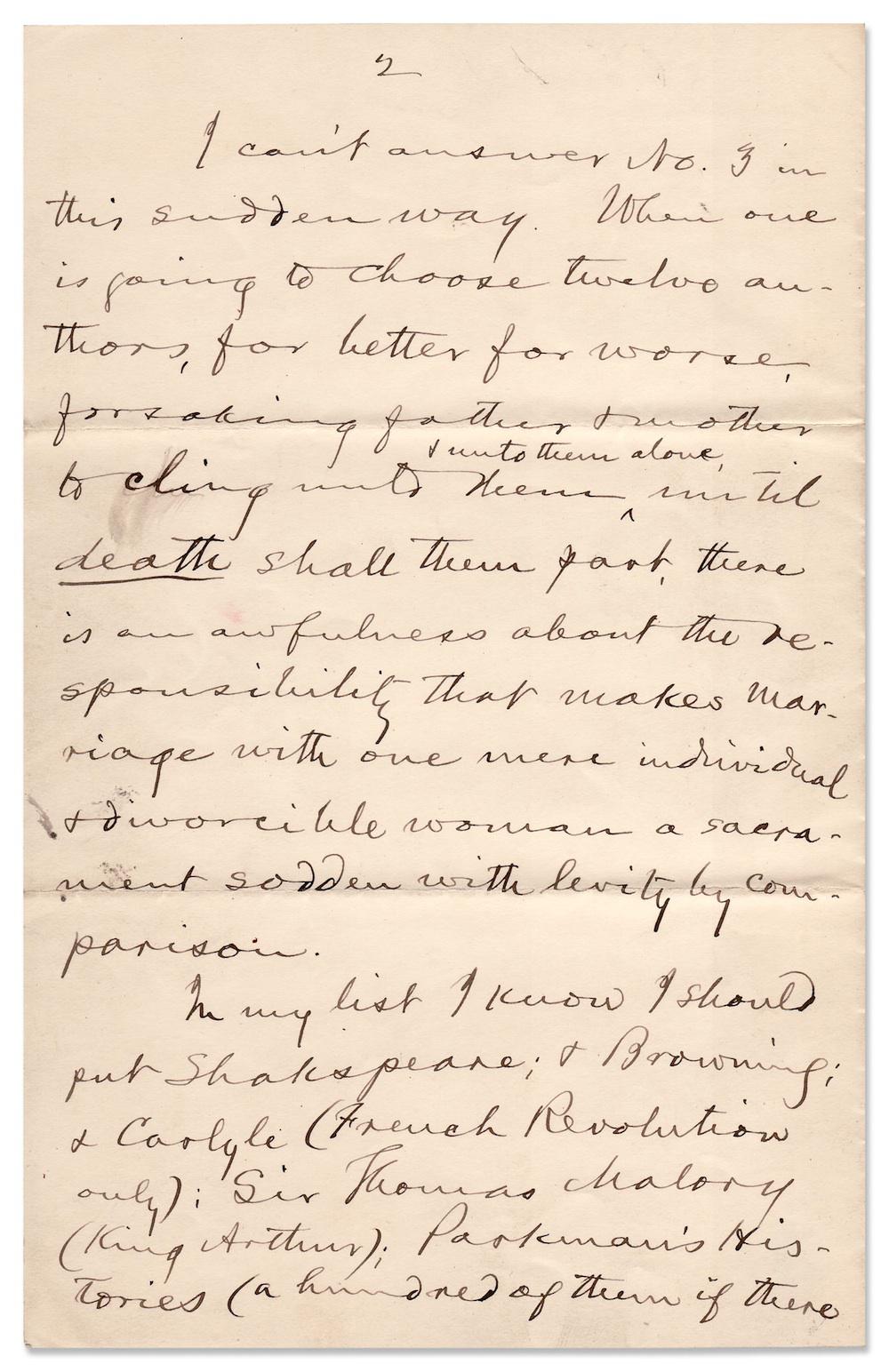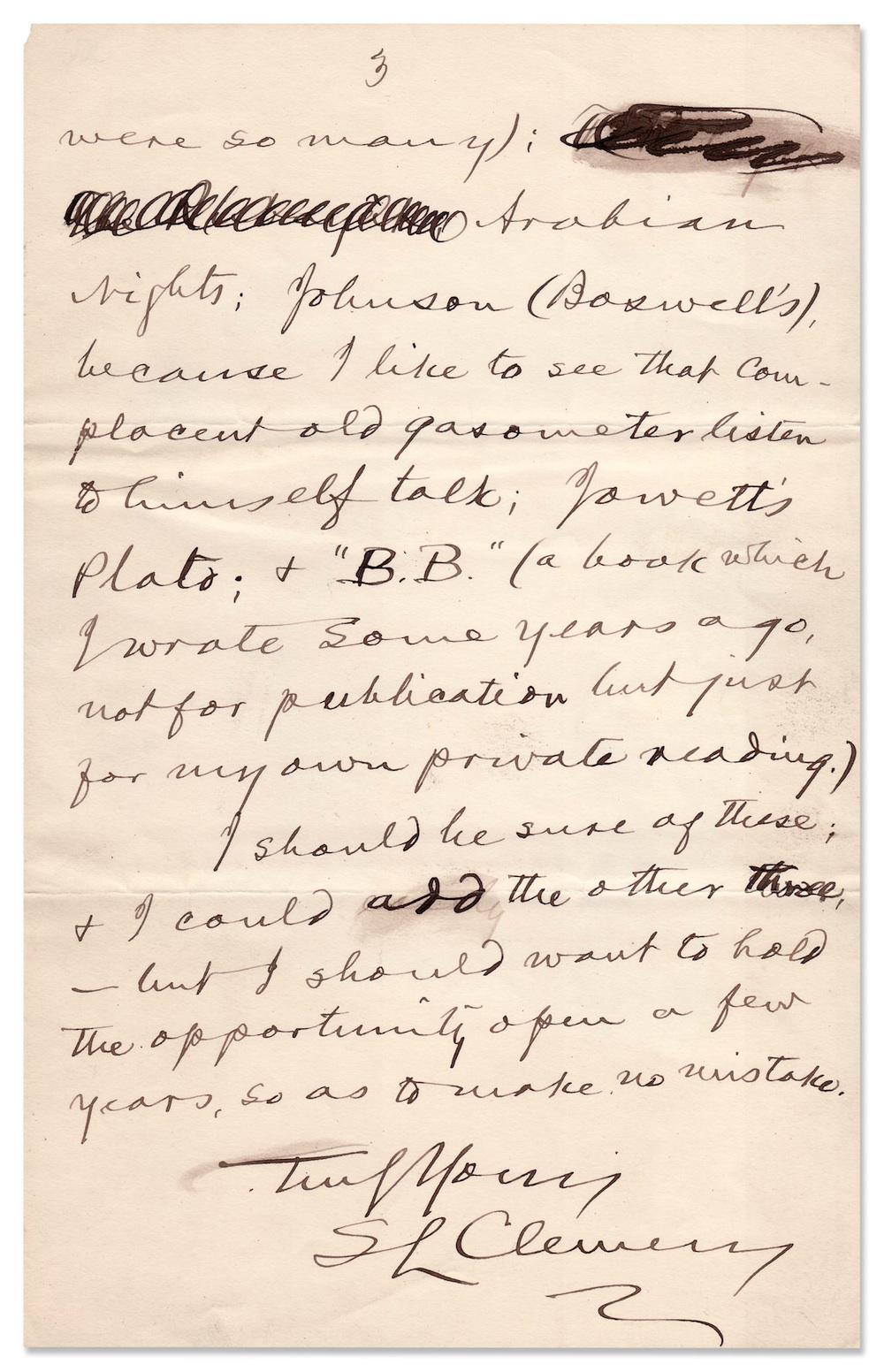The Vault is Slate’s history blog. Like us on Facebook, follow us on Twitter @slatevault, and find us on Tumblr. Find out more about what this space is all about here.
Mark Twain wrote this letter to Charles D. Crane, pastor of the Methodist Episcopal Church in Maine, in January 1887. Crane apparently asked Twain for book recommendations for a boy and a girl, as well as to name 12 of his own favorite authors.
Twain indulged Crane’s request, to a point. He waxed humorous about the burden of picking just 12 favorites, arguing that the choice of a wife was an easier task: “There is an awfulness about the responsibility that makes marriage with one mere individual & divorcible woman a sacrament sodden with levity by comparison.”
Twain’s recommendations for reading for young people can seem like heavy fare. Thomas Macauley wrote a two-volume history of England since the accession of James II that was greatly praised in its day, but would now seem like a big dinner to serve a teenage reader, colorful incidents notwithstanding. Twain withheld Defoe’s adventuresome Robinson Crusoe from the hypothetical girl reader, offering Tennyson’s poetry in its place.
Notably, none of the books and authors on Twain’s list for young people’s reading are American, with the exception of Gen. Ulysses S. Grant’s memoirs (which Twain himself had recently published).
Neda Salem, of the Mark Twain Project, told me via email that the “BB” that Twain refers to in listing his own favorite books and authors (he describes it as “a book I wrote some years ago, not for publication but for my own private reading”) was “likely a reference to 1601,” Twain’s bawdy Elizabethan satire written in 1876. “We’re not sure why he identifies it by the initials B.B.,” Salem added.
A transcript, courtesy of the Shapell Manuscript Foundation, which holds this letter, follows the images.

Courtesy of the Shapell Manuscript Foundation.

Courtesy of the Shapell Manuscript Foundation.

Courtesy of the Shapell Manuscript Foundation.
Transcript courtesy of the Shapell Manuscript Foundation (hyperlinks mine):
Hartford, Jan. 20/87.
Dear Sir:
I am just starting away from home, & have no time to think the questions over & properly consider my answers; but I take a shot on the wing at the matter, as follows:
=1.Macaulay;
Plutarch;
Grant’s Memoirs;
Crusoe;
Arabian Nights;
Gulliver.
= 2. The same for the girl, after striking out Crusoe & substituting Tennyson.
I can’t answer No. 3 in this sudden way. When one is going to choose twelve authors, for better for worse, forsaking fathers & mothers to cling unto them & unto them alone, until death shall them part, there is an awfulness about the responsibility that makes marriage with one mere individual & divorcible woman a sacrament sodden with levity by comparison.
In my list I know I should put Shakspeare [sic]; & Browning; & Carlyle (French Revolution only); Sir Thomas Malory (King Aurthur); Parkman’s Histories (a hundred of them if there were so many); Arabian Nights; Johnson (Boswell’s), because I like to see that complacent old gasometer listen to himself talk; Jowett’s Plato; & “B.B.” (a book which I wrote some years ago, not for publication but just for my own private reading.)
I should be sure of these; & I could add the other three - but I should want to hold the opportunity open a few years, so as to make no mistake.
Truly Yours
S.L. CLEMENS